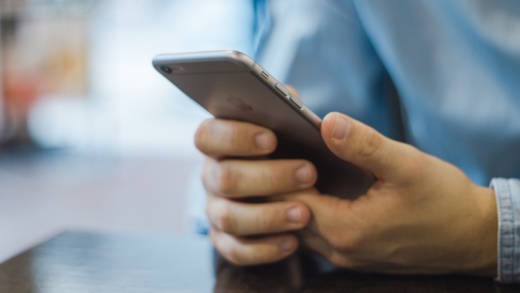After finding McCorvey’s phone number online following an easy Internet search, I handed over my cell phone and a few minutes later, my student was asking Norma McCorvey the following questions:
- Long before the U.S. Supreme Court ruled in your favor in the case of Roe v. Wade, you gave birth to a baby that was placed for adoption. Have you ever been reunited with that child; any interest?
- Do you think minor females should be required to get parental consent to have an abortion?
Can you imagine what that was like? Powerful learning took place that day and, via my cell phone’s speakers, the entire class was able to experience both sides of the conversation. Certainly it’s a phone call I will never forget.
EXAMPLE #2
Just this past month, one of my students — while reading aloud a paragraph from a primary source detailing racial segregation in 1920s St. Louis — came across the term “restrictive covenant.” After finishing the paragraph, the student asked, “What’s a restrictive covenant?” Truth is, I didn’t know.
Sure, I could have faked it, but on that day, in that class and with that reading, it was super important for all of my students to fully understand the meaning of the term. So I asked the class to use their Chromebooks to find out how best to define the term. “Look it up I said; tell me what you learn.” But did that ever prove frustrating! Way too much legalese to cut through. Finally, and in desperation, I reached into my pocket, pulled out my cell phone, and called a lawyer and good friend of mine. He was able to explain the term well, over my cell phone’s speakers, no less.
EXAMPLE #3
Every semester in my U.S. Government class, I give a TED-Talk style presentation entitled The Watergate Scandal. In this presentation, I teach, among other things, about the power of the Senate to investigate and the power of the president to pardon, and I make quick mention of G. Gordon Liddy, best known as the chief operative in the White House Plumbers Unit that existed during Richard Nixon‘s presidency.
Some years back, two of my students raised their hands to ask two questions that I could not answer.
The following day in class, after having found Liddy’s phone number online, one of the two students used my phone to asked G. Gordon the questions directly.
- You were convicted of burglary, conspiracy and refusing to testify before the Senate committee investigating Watergate and consequently served nearly 52 months in federal prison. Do you think you were punished fairly?
- How do you feel about President Ford’s pardon of Richard Nixon?
Need I add that, yes, Liddy’s answers were heard by the rest of the class via my cell phone’s speakers.
EXAMPLE #4
Every semester the students in my U.S. Government class work on something called a Civic Action Project. During the project, students often need to acquire knowledge that can’t be found online, and which only our city’s mayor, city council members, city manager, police chief, and/or fire chief can provide. The phone calls we’ve made have resulted in one great story after another, with one in particular topping the list — when on of my students used my phone to ask our city’s police chief about some parking tickets that had been issued earlier in the day.
EXAMPLE #5
Aside from my social studies teaching duties, I also coach our school’s mock trial team. I’ve been doing this for more than 20 years, but, until recently, I’d not found a good way to teach the hearsay rule. In the past, no matter my approach, my student attorneys always ended up giving me that dear-in-the-headlights look. Then four years ago, I tried something different.
You guessed it, I reached into my pocket, removed my cell phone, and called a friend — an attorney and highly successful fellow mock trial teacher.
How I wish I had taken two photographs. One of the student attorneys huddled around my cell phone listening to my friend explain the hearsay rule. Another of the looks on the students’ faces at the end of the phone call. Not only did they learn the rule, but I learned how to teach it in a way that future mock trialers would grasp.
EXTERNAL SPEAKERS
Perhaps you are wondering if I’ve ever connected my cell phone to an external set of speakers. I have not. I have always simply relied on my phone’s built-in speakers to project the audio to all corners of the room, and it’s worked well enough. But if you’re interested, you can purchase externals speakers for well under $100. For more information, click here.
ENDNOTE
Despite all these examples of how I have used my cell phone over the years, the truth is that I haven’t used it nearly enough. Often times, it simply doesn’t dawn on me to reach for my phone until many days after it could have been useful.
